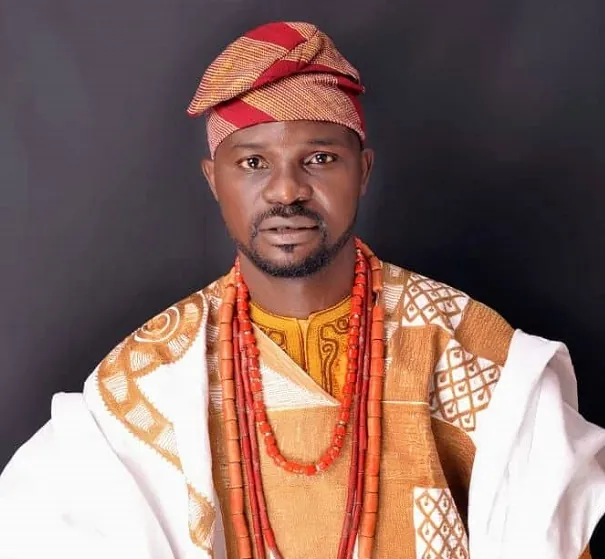“There’s no doubt mankind serves the same god in different ways. But the most recognized and populous religions are Islam and Christianity, in the case of Nigeria at large.
So individually, people have been converting to Islam before the arrival of ( Sehik Maharoof Uthman ) popularly known as Uthman dan Fodio (RTA). Uthman dan Fodio was born on the 15th of December 1754 and died on the 18th of April 1817. So if you do your plus and minus you will realize he was 63 years when he died.
Meanwhile, Oyo-Yoruba came in contact with Islam around the 14th century during the reign of . Alh Abubakar Mansa Kankan Musa of the old Mali Empire. So the first Mosque was built in Ọyọ-Ile in AD 1550 during the reign of ALAAFIN EGUGUOJO. although, there were no Yoruba Muslims at all including Alaafin and every member of the supreme Oyo empire ruling house. the Mosque only served the spiritual needs of foreign Muslims from Mali, Sudan Mauritania, and so on living in the Ọyọ empire peacefully with Alaafin.
And all this happened in Oyo ile to be specific.
Atiba Atobatele is one of the last Oyo empire princes that did not leave present-day ILORIN on time after the conflicts in oyo Ile, so, he had already learned how to read the Quran from sehik Abdul Salaam (son of Sheik Muhammad’s Soliu Janta popularly known as ( Sheu Alimi ) and that was how he was converted to Islam and an Islamic name was given to him ( Muhammad Soliu) the same name as his Sheik’s father that brought him into Islam religion.
He (atiba) leaved with the Sheik Abdul Salaam until the stool of Alaafin was vacant in 1859. When The message got to him that he is the next Alaafin of Oyo. His Sheik ( Salaam) was very happy and couldn’t wait to see his student on the throne that has never been occupied by Muslims before. Young Prince Muhammad Saliu Atiba atobatele dynastically and gorgeously dressed from Sheu Halimi’s House to present-day Oyo with white horses and entourage.
The scounty Muslims in Oyo and indigenous were so excited about having a Muslim as Alaafin as well. After the coronation, Oyo Muslim councils were formed and Alaafin was made the head being the KING.
So Apart from cultural and traditional responsibilities, Alaafin has always been the head of Muslims. He (Alaafin) chooses Chief Imams that lead him in prayer in Oyo and other Islamic titles like.: Mufasiru, Mufti, and so on. That was how Alaafin Atiba became the first ALAAFIN AJAKA DESCENDANTS to convert to Islam and ever since then, all his successors emulated their father right from the reign of Alaafin Adelu. They were all Muslims.
1. Muhammadu Lawal (Alaafin Agogoija)
2. Abubakar ( siyanbola oladigbolu )
3. Muhammad Raji ( Alaafin adeniran)
4. Muhammad Bello ( Alaafin gbadegesin)
5. Abdul-hammed (late Adeyemi 3rd)
So, influence of Alaafin remains unlimited That’s why Oyomesi needs to be very cautious .
Alaafin stool has been tied to some other Islamic activities in addition to the spiritual influences right from the dispensation of the Alaafin Muhammad Saliu Atiba Atobatele who founded present-day Oyo.”
Copied!!
My response is that I am a bit confused here. I thought AláàfinAólẹ̀ was the last king of Oyo Ilé and it was Alaafin Àtìbà that founded the new Ọ̀yọ́ Àtìbà. Who are the people who sent message to Alaafin Àtìbà to come to the place he founded to come and be king the new king after Ọ̀yọ́ ilé has been completely destroyed. I am a scholar and we usually screen history.
If it is true that Ọ̀yọ́ ilé was completely destroyed and Aláàfin Àtìbà took his people to this present Ọ̀yọ́. He would have concentrated on development of the land with his people and he is automatically the potential king.
Secondly those Islamic scholars whom Alaafin Àtìbà lived with in his childhood days are the people who lied to him that our ancestors originated from mecca. I learnt that the history of mecca was passed from Aláàfin Adeyemi 1 and we can see that the distortion history came from Ilorin kaliphate to mislead our future generations so that they can take over all our land from our kings.
Thirdly I am bit confused… We learnt that it was Abdusalami Alimi son that kpai Afonja and AláàfinAólẹ̀ Àtìbà father. How come the same person who kpai his father is the same person who mentored him.
Please I need more light here. How is it possible for a child to live with the person who kpai his father and Aláàfin Oluewu??Ṣé ọmọ ìyá nínú ẹ̀sìn ni wọ́n fi ṣe ni?? Or was Alaafin Àtìbà vulnerable and helpless having lost his parents and how old was he then??
We need more light from this history from Ọ̀yọ́ Prince??
IRE OOOOO!!
FOLLOW US ON:
FACEBOOK
TWITTER
PINTEREST
TIKTOK
YOUTUBE
LINKEDIN
TUMBLR
INSTAGRAM































